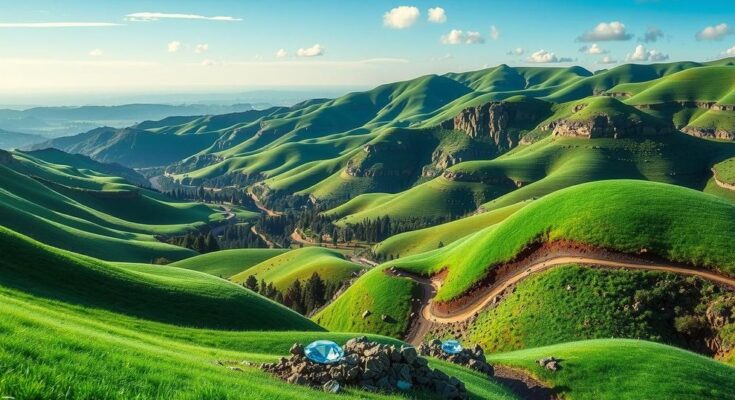Digne Rwabuhungu, a geologist at the University of Rwanda, refutes claims of Rwanda lacking mineral resources by citing historical surveys that disclose deposits. He highlights the importance of the Karagwe-Ankole Belt, the dynamic nature of critical minerals, and the need for responsible production strategies. Rwabuhungu calls for investment in workforce development and the establishment of a geological survey institution in Rwanda.
Digne Rwabuhungu, a geologist at the University of Rwanda, challenges the notion that Rwanda lacks mineral resources. Historical surveys from the 1930s confirmed the presence of valuable deposits such as tin, tantalum, tungsten, and gold. Rwabuhungu, with a PhD in geology from Belgium and a prolific researcher, emphasizes the well-documented nature of these resources. He encourages skeptics to consult colonial-era archives that clearly outline Rwanda’s mineral wealth.
The geologist highlights the geological significance of the Karagwe-Ankole Belt, a region encompassing parts of Uganda, Tanzania, and Rwanda. This geological formation contains rich minerals, including cassiterite and coltan, which are currently mined in various regional countries. Rwabuhungu underscores that geology knows no borders, indicating that mineral resources can be spread across national lines, emphasizing the global importance of shared geological features.
According to Rwabuhungu, the classification of critical minerals is dynamic and influenced by economic factors and supply risks over time. Since the 1930s, surveys have continuously indicated Rwanda’s deposits of important minerals. The Rwanda Development Board affirms that the country contains numerous historical mineral occurrences and operational mines for various commodities, including rare earth elements and lithium-bearing minerals.
He specifically notes that lithium, a critical mineral primarily used in electric vehicle batteries, has only gained recognition recently. Rwabuhungu lists several countries that are major lithium producers, including Australia and China, underscoring the international scope of lithium mining efforts. He believes that further exploration is needed, especially since the University of Rwanda has only had a mining and geology program since 2015.
Looking ahead, Rwabuhungu predicts an increasing demand for critical minerals owing to technological advancements, particularly in e-mobility. A report by the International Energy Agency forecasts a 125% rise in electric vehicle demand from 2017 to 2030. Countries rich in mineral resources must establish responsible production strategies to meet this growing demand while avoiding excessive market saturation. Rwabuhungu calls for investments in local workforce skills, noting the increased number of trained professionals since the establishment of UR’s mining program.
Despite progress, Rwanda still lacks a dedicated geological survey institution. Rwabuhungu advocates for the creation of such an entity to aid in the awareness and mapping of the country’s natural resources, taking inspiration from established organizations in countries like the United States and the United Kingdom.
In summary, Digne Rwabuhungu articulates Rwanda’s rich mineral resources, affirming their presence as documented since the 1930s. He emphasizes the importance of geological research, the dynamic nature of critical minerals, and the need for responsible production strategies in the face of emerging technologies. Additionally, the call for investment in local geological education and the establishment of a geological survey institution reflects the path forward for Rwanda in harnessing its mineral potential effectively.
Original Source: www.newtimes.co.rw




